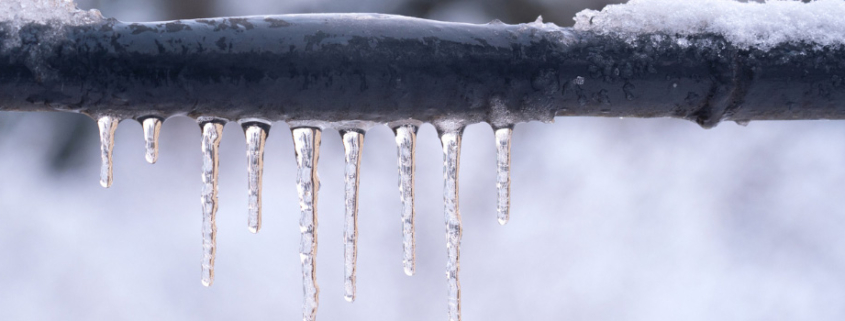Tips for protecting your home or business from frozen water pipes
As spring approaches, it’s important to remember that freezing temperatures can still occur. To avoid frozen water pipes, it’s crucial to heat your home or business properly during this transition period. Frozen pipes can cause extensive damage and create a lot of inconvenience for property owners, including costly repairs. However, proactive measures can help safeguard your property.
Here are some things you can do to protect your property:
• Keep your furnace running.
Even as temperatures warm up, it’s essential to keep your furnace on. Home and business owners should keep the inside temperature at or above 55 degrees.
• Purchase a generator.
A generator can help keep your property heated even during a power outage.
• Install temperature or moisture monitoring sensors.
If you have a security system for your home or business, you may be able to add these features. If not, stand-alone sensors can be purchased and connected to your smartphone via Bluetooth.
• Drain pipes that aren’t protected or used during the winter.
This can be a simple but effective measure.
• Ensure there’s no unaddressed property damage.
If you’re heading to a warmer climate for some reprieve from the cold temperatures, be sure there’s no unaddressed property damage that could allow cold air to get in.
• Contact your sprinkler contractor.
Working with your contractor can identify areas that could be susceptible to freezing.
What to do when a frozen pipe bursts
• Turn off your water at the main shut-off valve.
No matter the problem, turning off the water is the key to stopping a water leak. To do this, you’ll need to find your shut-off valve. Attaching a shut-off tag is an excellent way to help your family members or employees find it more quickly.
• Remove your business or personal items.
Depending on where the water leak occurs, you may have to remove items quickly. Prioritize what to remove based on value or sentiment.
• Call your local plumber.
An experienced plumber is trained to find, fix, and replace burst pipes. Don’t try to do it yourself.
• Call your local electrician.
If your circuit breaker is damaged by water, please call your local electrician to identify the damage and assist in the repairs.
Questions about your coverage? Please reach out to our staff today!







Leave a Reply
Want to join the discussion?Feel free to contribute!